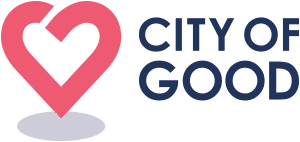
Should community developers be measuring success?
On paper, the impetus to measure success within your community seems like a meaningful endeavour. However, it’s more complex than that.
Negative implications of success
Bee Leng of AMKFSC Community Services, a community-based social service agency in Singapore, warns that words like “success,” “productivity,” and “efficiency” carry with them certain connotations and implications to be wary of.
“Sometimes we need to look at the language and words used. Words like ‘success’ and ‘productivity’ are laden with notions that may drive us to go for quick results that hijack processes that require time, such as trust-building.” she says. “In community work, the process is as important as the outcome.”
The other question is “success for who?” We risk a tendency to skew the goals based on what developers think success should look like rather than what really matters to the community and its members.
For example, a developer that believes the definition of success in their community is increasing its membership will naturally measure things like attendance, leads, and referrals. Sure, these indicators can be worth measuring in the right circumstances. But they also ignore the more intangible aspects of community-building, such as engagement and the quality of relationships between members.
Is success limiting?
Shi Hui of Yishun Health, a network of medical institutions and healthcare facilities under Singapore’s National Healthcare Group, argues that the word success implies a finite outcome—a beginning and an end. But in reality, community work is an ongoing effort.
“After success is achieved, then what?” she asks. “Maybe it works for a one-day session—for example, today I want to meet one person. But it doesn’t work for a community because it is a long-term thing. It should be a continuity thing.”
Shi Hui adds that it’s one thing to use milestones to evaluate the value of short-term programmes, but it’s another to interpret a community’s milestones or achievements as being the indicators of its success or failure. And when developers constantly chase milestones, this can limit the potential of a community, as well as its developer, to grow and develop meaningfully.
These concerns aren’t exactly unwarranted.
Just as it’s a bad idea for parents to place rigid expectations on their child’s development based on benchmarks of “normalcy” (e.g., walking and talking at a certain age), developers shouldn’t adhere strictly to a set of metrics when managing their communities.
More often than not, when you’re working towards success or perfection, you’re not seeing your community—you’re seeing something that needs to achieve something stated in a book or achieved by another community. This can result in the unintended consequence of forcing your community to act in an unnatural way, which can alienate members.
Managing different understandings of success
All that being said, is it still worth measuring success in communities?
Short answer: Yes.
Long answer: Yes, but your approach has to be a lot more nuanced.
The consensus among the community developers we spoke with is that there is no one overarching definition of “success.” But rather, success should be viewed through the lenses of the three primary stakeholder groups in your community:
- Members
- Developers
- Funders (if relevant)
As a developer, you need to recognise that each group has its own valid take on what success in the community looks like. This way, whenever there’s a need to measure or define success, you know who you’re doing it for.
For instance, Michelle of Artswok Collaborative, an arts-based collaborative community, asserts that it’s necessary to measure the outcomes of different initiatives in the community to demonstrate their importance to the people she’s accountable to—the community’s board, funders, and partners.
“As an organisation, you need to have a purpose but have the flexibility to shape it based on what you see and the needs that have surfaced,” she says.
Hang Zhong echoes this sentiment. The Nature Society, he points out, grew from a common interest in nature shared by academics and enthusiasts. Over time, however, this interest evolved into advocacy, which meant the community now had a tangible goal: money to fund its initiatives.
“Ultimately we are still a charity with no fixed revenue streams. If there were any success indicator, I think it’ll definitely be donor engagement,” he says.
Next Chapter: Identifying KPIs or Metrics for Community Success






















